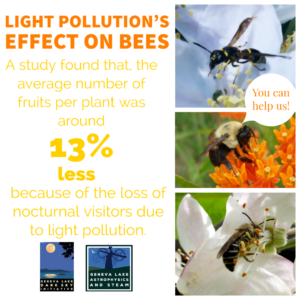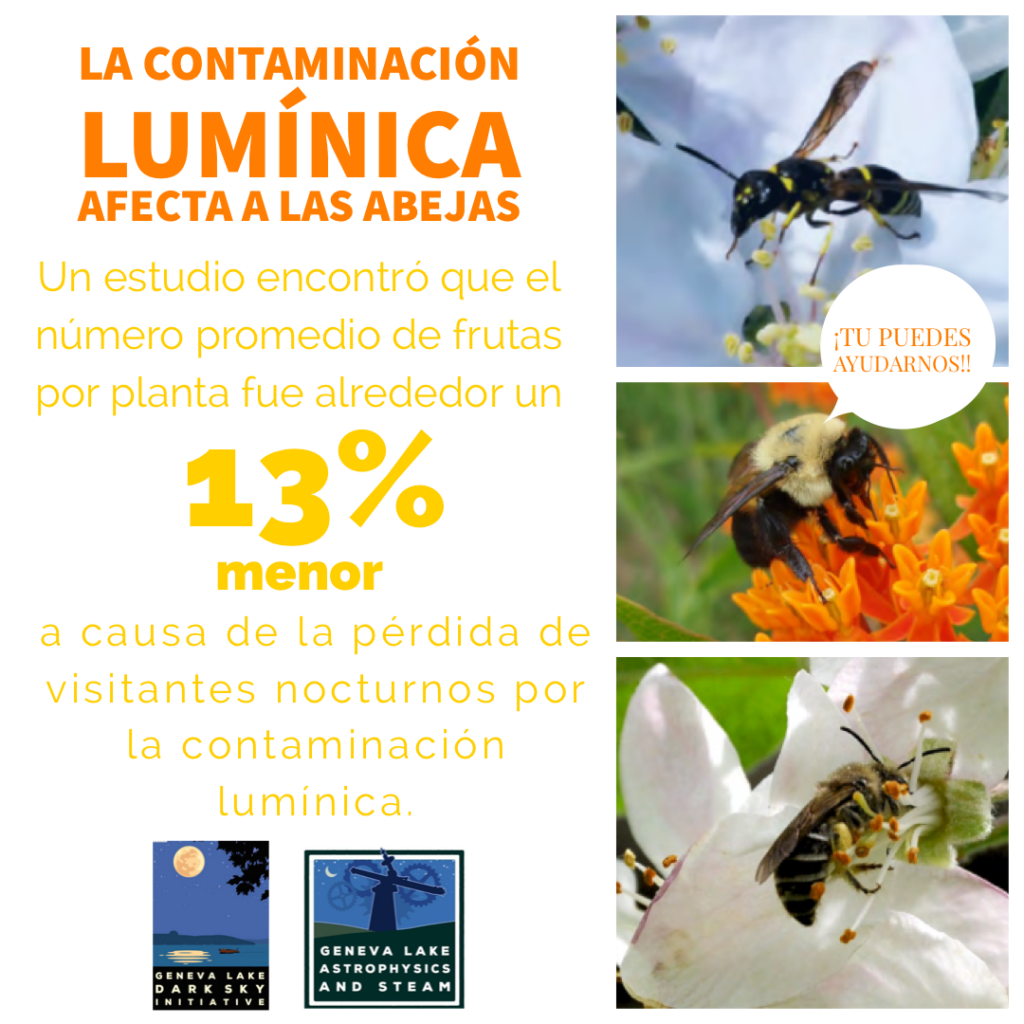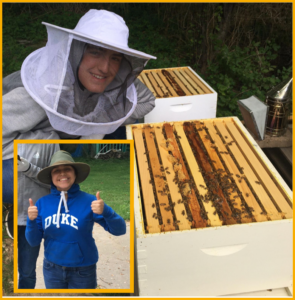 You might be wondering, “What in the world is the connection between honey bees and light pollution?” And like you, I once wondered the same thing. I took a keen interest in bees at a young age, but it wasn’t until recently that I learned how light pollution is hurting the bee population.
You might be wondering, “What in the world is the connection between honey bees and light pollution?” And like you, I once wondered the same thing. I took a keen interest in bees at a young age, but it wasn’t until recently that I learned how light pollution is hurting the bee population.

So it might not surprise you that I wanted to share this information with our community since bees have a special role in our lives. Here are a few takeaways from my research:
-In the past decade, beekeepers in the U.S. and Europe have reported losses of 30% or higher, in annual hive losses.
-A study found that the average number of fruits per plant were around 13% less due to the loss of nocturnal visitors because of light pollution.
-The same study also discovered a significant decrease of 62% in the variety of pollinator species.
During the last week of July, we (Geneva Lake Dark Sky Initiative and GLAS Education) launched a #savethebees campaign on our social media platforms about the effect of light pollution on bees. On our Geneva Lake Dark Sky Initiative Facebook page, we reached over 8,000 users. On our GLAS Instagram account, we reached over 370 people.
To reach a larger and more diverse audience, we decided it would be best if we posted graphics in English and Spanish. The majority of our recent content is accessible for Spanish speaking residents of Walworth County. The more informed our communities are, the more our quality of life will improve.
Although many factors have contributed to the decline of our bee populations, light pollution is one we can diminish. Our media campaign tells the story, do let us know what you think.
I can only hope that for your well-being, you take action and decrease the amount of light pollution in our community. If you or a student you know would like to join our work, please contact [email protected].
